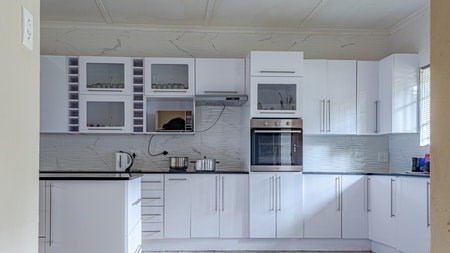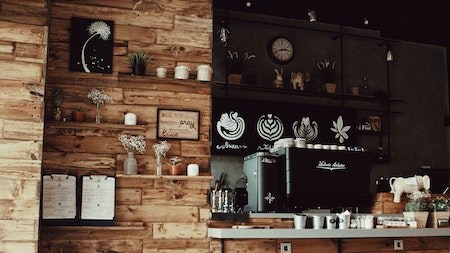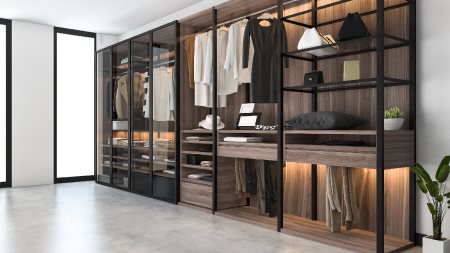To make the most of your kitchen, you need to take advantage of every centimetre of space and maximise storage.
Kitchens come in all shapes and sizes with or without pantries, which can be big, small, or walk-in, with drawers, shelves and roll-out compartments. Whatever your arrangement, optimising the space comes down to organisation. An organised kitchen will make cooking meals easier and help avoid buying groceries that you already have stashed away.
Take stock
The first step is to take everything out of your cupboards. Clear ample space on a countertop or kitchen table where you can sort as you go and see everything at once. This will enable you to take stock and facilitate the decluttering and organising process.
- When your cupboards and pantry are empty, clean all the shelves well.
- Now examine what you have. Check expiry dates and throw out items past their best before date or that you no longer use. If you come across long-life items you know you'll never use, set them aside to donate to a charity. There may be pick-up points at your local supermarket.
- Add items to your shopping list as you go so that you don't get caught without essentials.
- The next step is to group what you have into categories. For example, put all baking goods in one place, cereals in another, spices and herbs together and so on.
Storage
Use clear sealable containers to store all your food items to make the most of your cupboard space and keep food fresh for longer.
- Choose containers that stack easily and are big enough so that you don't end up with half packets of food that won't fit in. Label all containers so that you know what's inside.
- For items that don't require sealable containers, use baskets, tubs or stands to maximise space and visibility in your pantry.
- Tiered shelving works well for tins and bottles, and storing reusable and plastic grocery bags in baskets keeps the floor clear.
- Use open tubs for snack items and store them below eye level so that you can empty the snacks into the tub and the whole family can see what's available.
- When deciding where to put everything, store regularly used items at eye level and those you use less often higher up.
General
Once your kitchen is organised, you'll waste less food because you'll be able to see what you have and nothing will be hidden at the backs of cupboards.
- Place opened packets in secure containers to prevent pests like ants and weevils.
- For deep shelves where items tend to get lost or forgotten about, add a tiered shelf against the back wall to make them more visible.
- Label shelves so that everyone in your household knows what goes where and can help pack away groceries and keep the kitchen organised.
- Organise sections into baskets, so they can easily pull out of the pantry and rummage through.
- Baskets are great for herbs and spices if you label the lids so you can see what you have on hand.
- If your pantry is small, buy only what you need in the next week. Alternatively, use another cupboard in your home to store items you don’t use daily, like tins, paper plates and serviettes.
- A lazy Susan is great for storing condiments and sauces that you use regularly.
- Draw up menus for the coming week because this will help you use up any items close to their expiry dates or anything you may have bought too much of.
Your organised kitchen space will inspire you to cook and eat healthily. Also, drawing up your shopping list will be easy because you can quickly and easily see which items are running low.
Writer : Sarah-Jane Meyer




